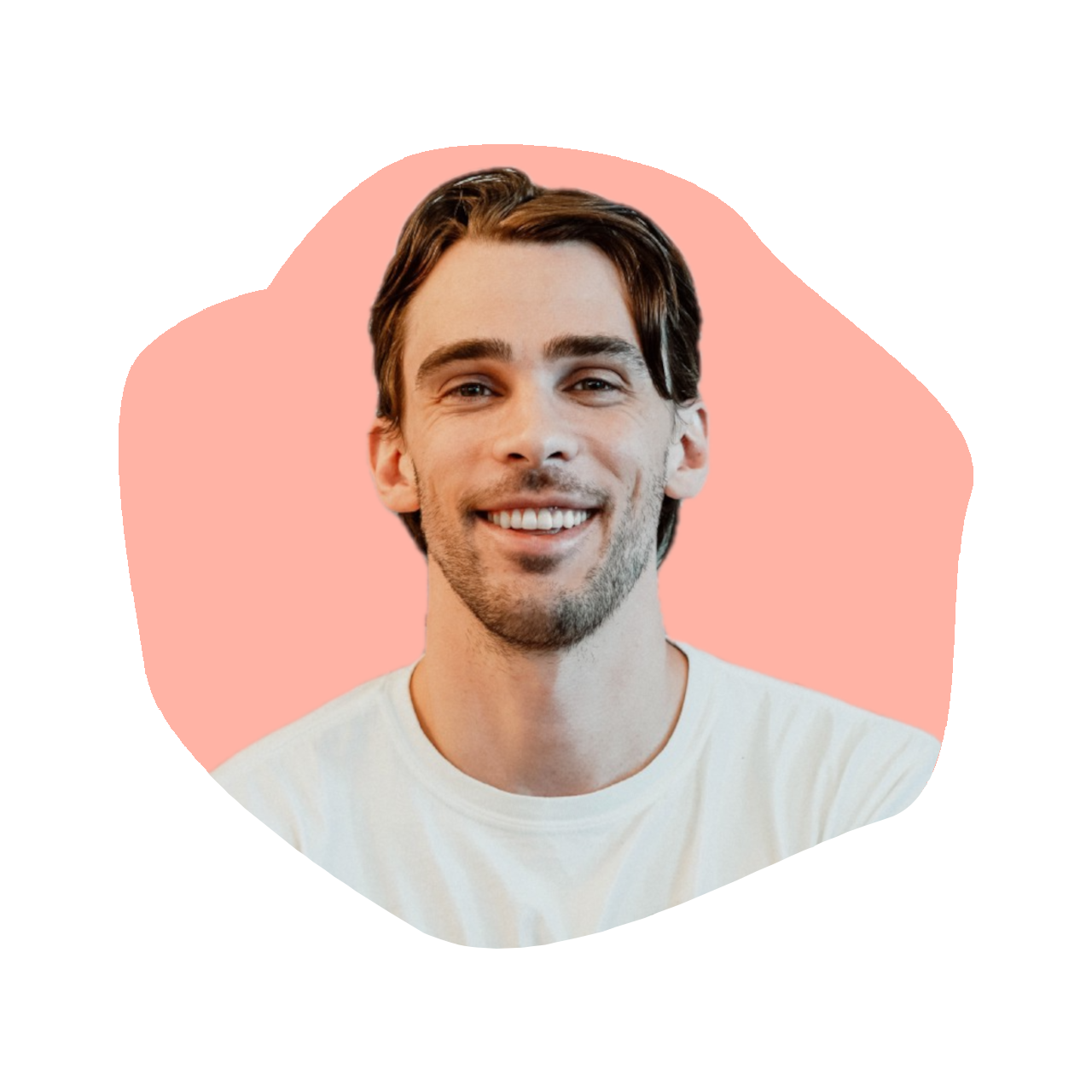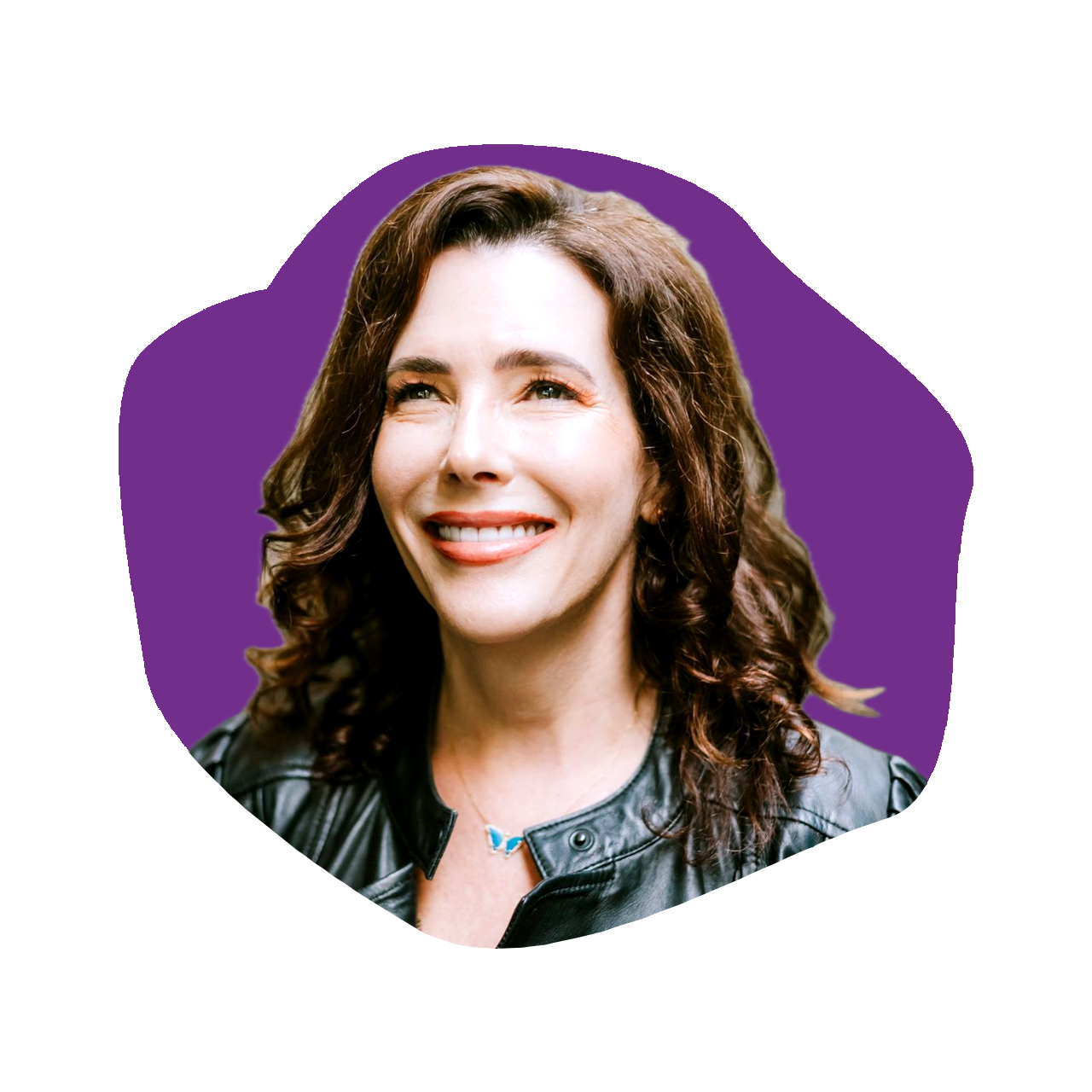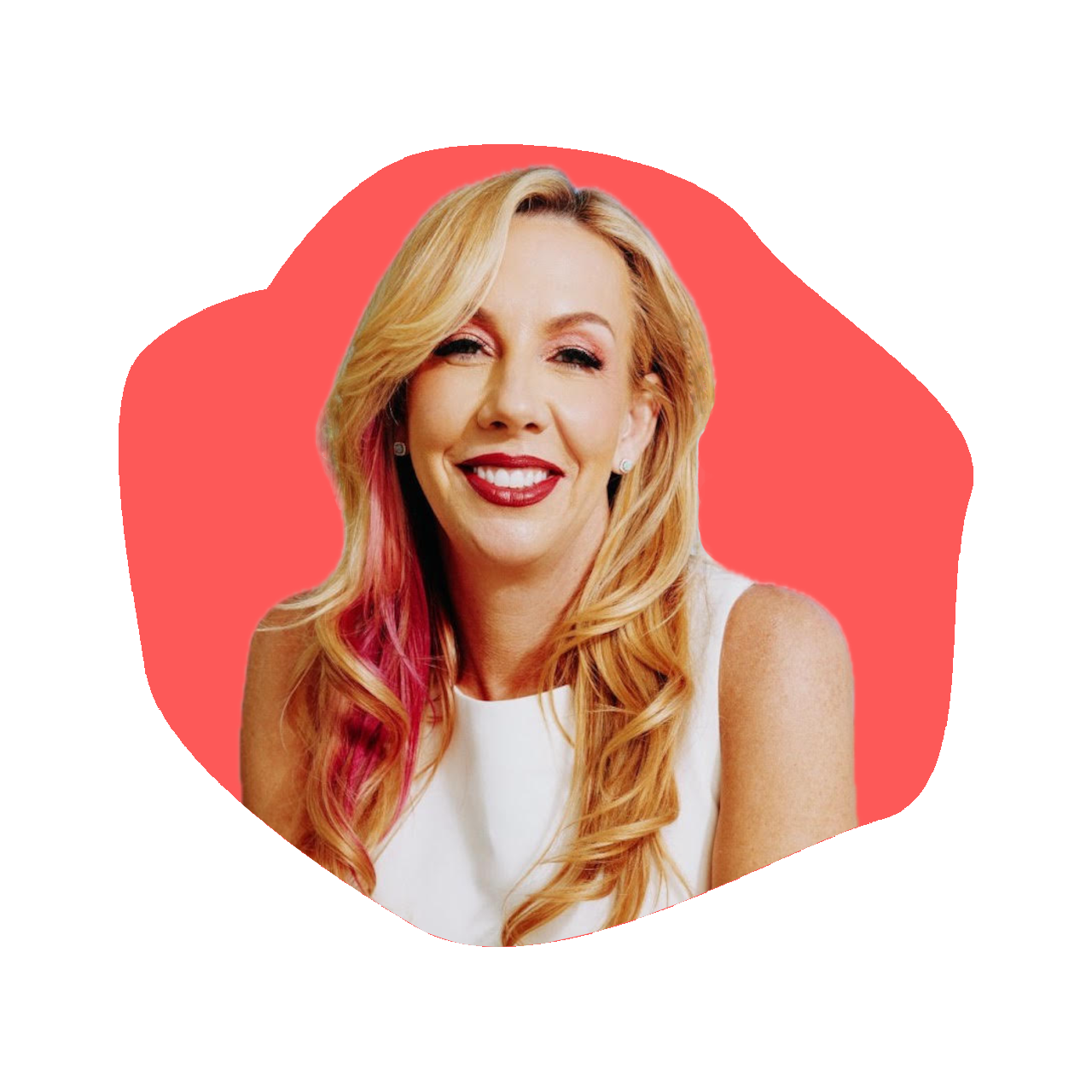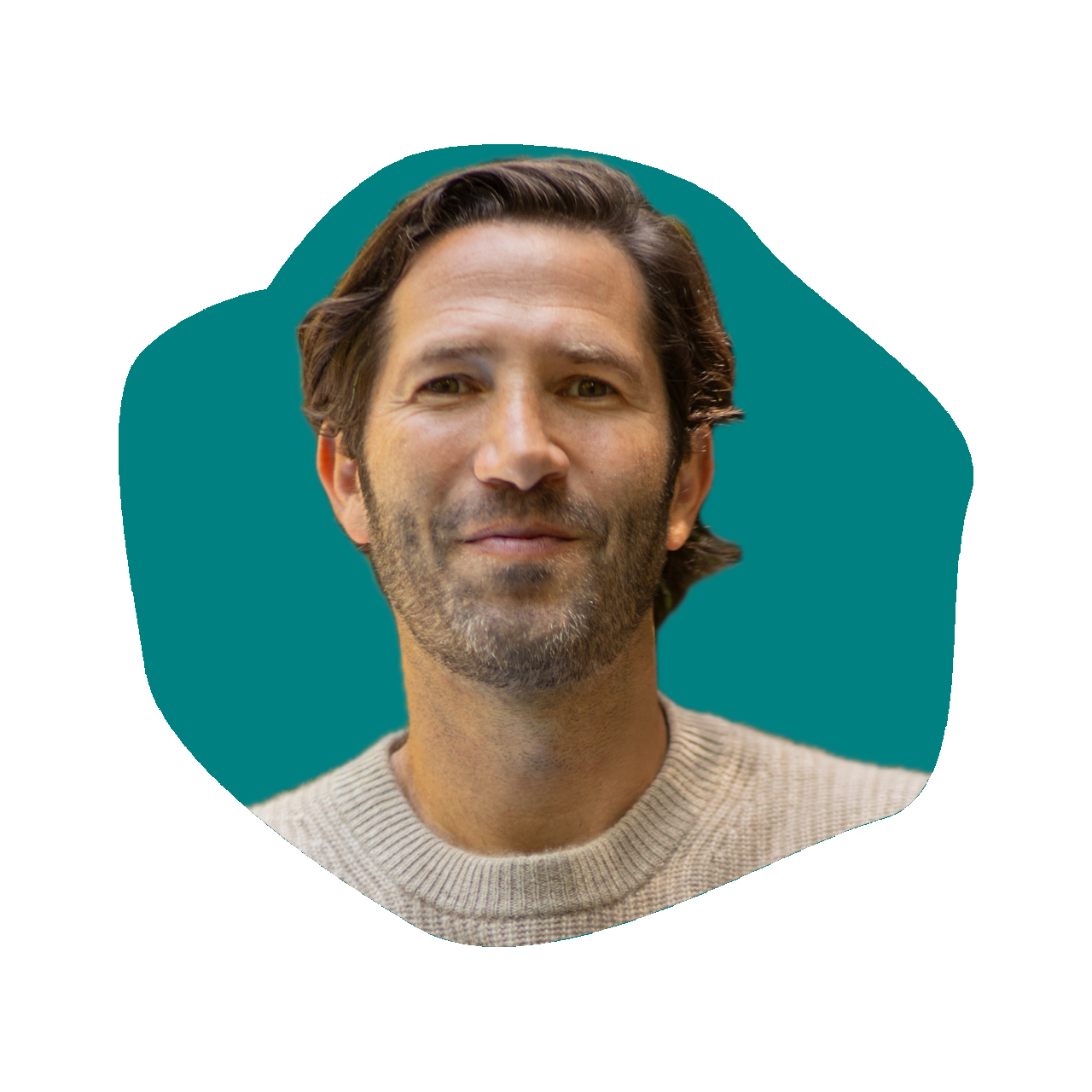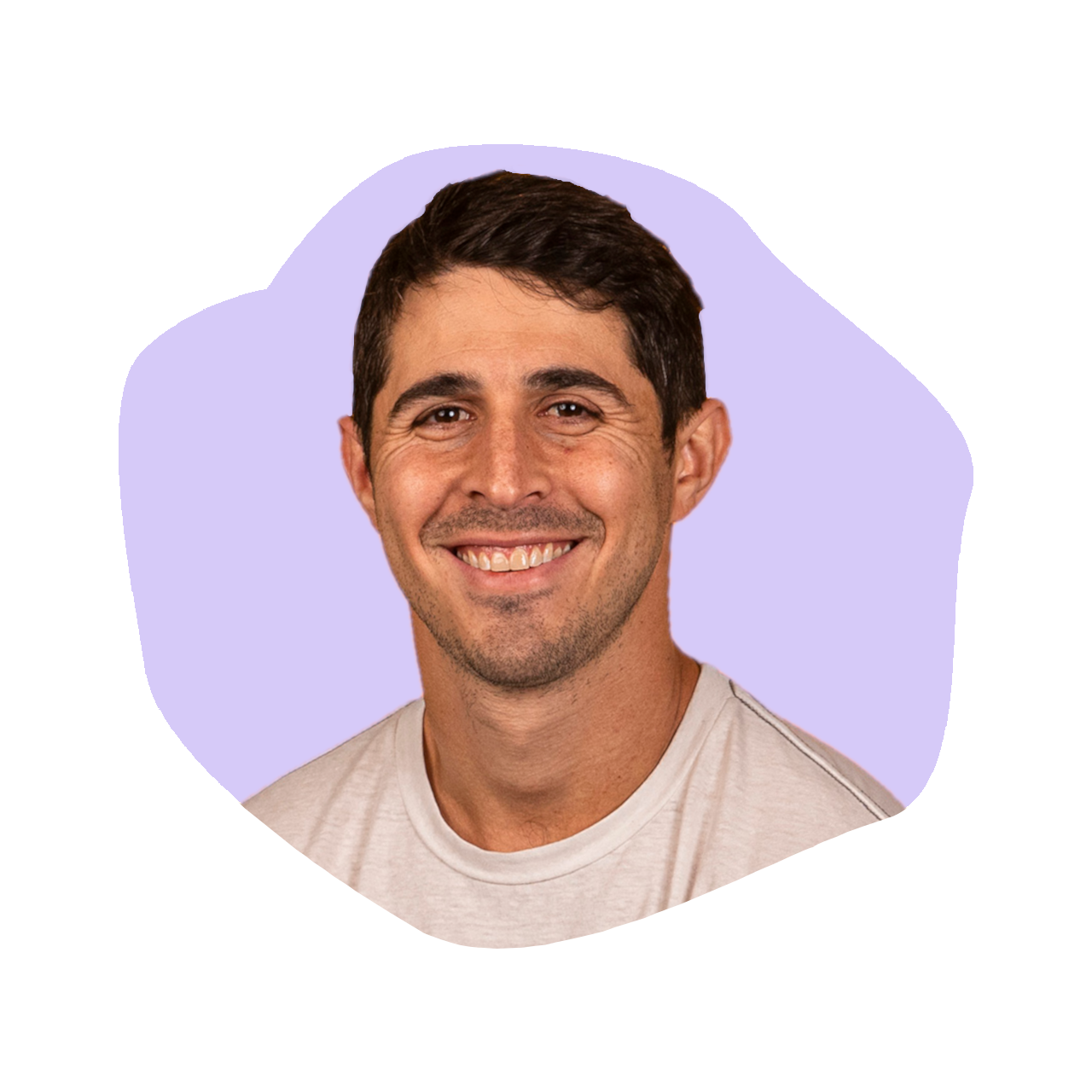Maria Shriver – Empowering Women as an Award-Winning Journalist, Bestselling Author, Former First Lady of California, and Founder of The Women’s Alzheimer’s Movement
Episode 47
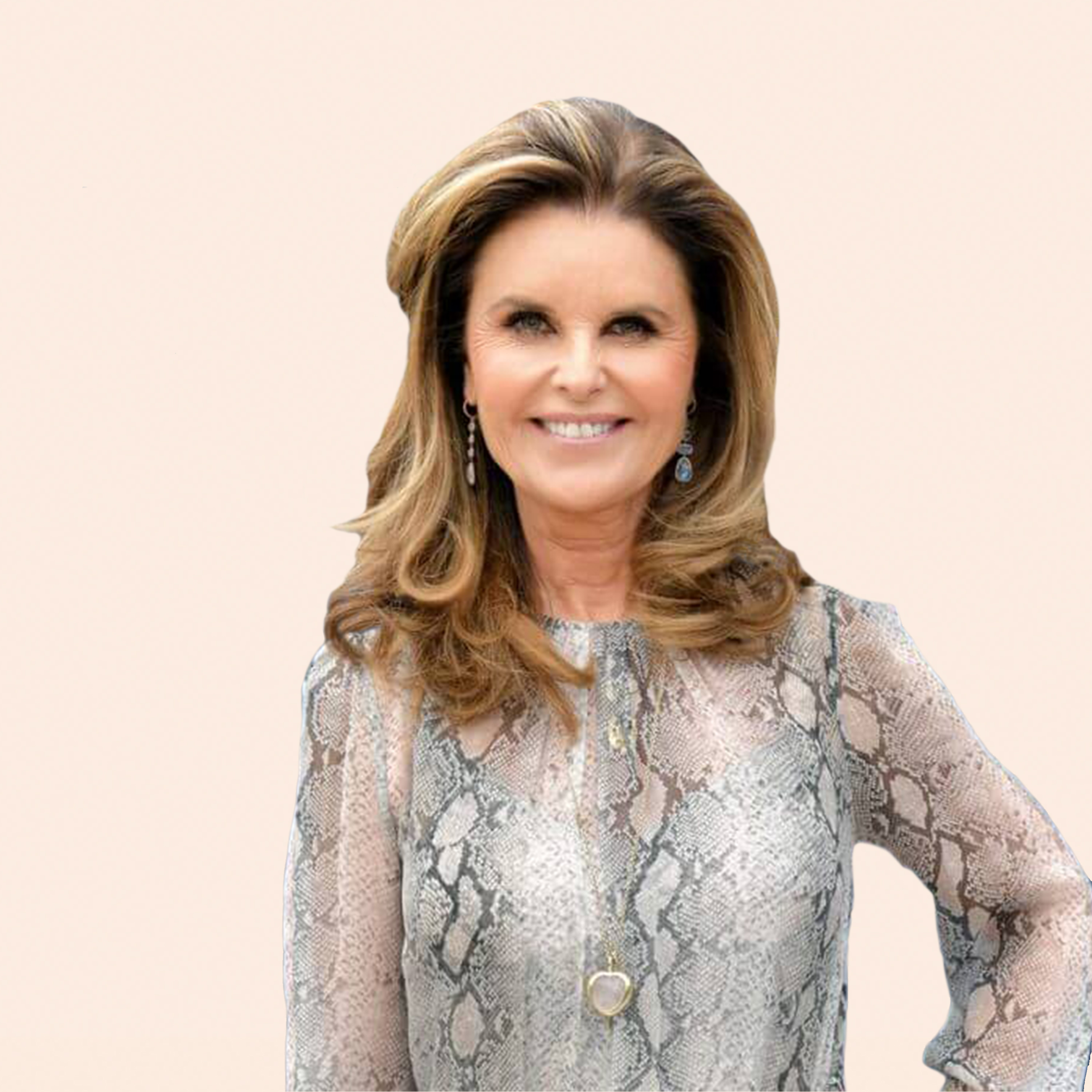
Resources from
this episode:
Enjoying this episode of #TheKaraGoldinShow? Let Kara know by clicking on the links below and sending her a quick shout-out on social!
Follow Kara on LinkedIn – Instagram – X – Facebook – TikTok – YouTube – Threads
Have a question for Kara about one of our episodes? Reach out to Kara directly at [email protected]
Transcript
Kara Goldin: Hi everybody, it’s Kara Goldin from Unstoppable, and I’m so excited to have Maria Shriver here today. Hi Maria, how are you?
Maria Shriver: I’m great, how are you my friend?
Kara Goldin: Good, good. So for those of you who aren’t familiar with all that Maria’s been doing, I mean, she was the first lady of California and has done many things. She’s a NBC Today journalist, as well as executive producer of the Alzheimer’s Project, which we’re going to talk a little bit more about that today. And actually the founder of the Women’s Alzheimer’s Movement, which we’re really going to talk about today. She also hosts a weekly podcast called Meaningful Conversations, which if you have not tuned into that, definitely have a listen. And her book, I’ve Been Thinking… The Journal, was a number one New York Times bestseller, incredible, incredible. She’s also a mother of four children, so we definitely have chatted about that as also a mother of four kids too. So welcome Maria, very excited to have you here.
Maria Shriver: Thank you.
Kara Goldin: So, and where are you at today?
Maria Shriver: I’m in New York. I’m here doing the nine o’clock hour. I’ve been substituting a lot because it seems like everybody at NBC is either pregnant, just you know on maternity leave on some kind of a leave, so I’m a pitch hitter coming in, which is actually turned out to be a lot of fun. So I’m here in New York and working on the Today Show. We just finished doing a big series on women’s health.
Kara Goldin: I saw that.
Maria Shriver: Which is great, which I was really happy about to take a look at the state of women’s health, how women feel about their comprehensive health, their financial health, their cognitive health, their physical health, their spiritual, emotional, mental health. And it was really interesting where women felt in control, where they felt out of control and just trying to turn the lens on women’s health. And when women feel like they are coming into their own where they feel like they’re powerless. And so I’m hoping to do more pieces like that. We’ve also done a big series there on disruptors, women who are changing the health landscape with companies like You, different health companies where particularly young women have come in and said, “This isn’t working for me and I want to change it.” So I’m trying to use the platform for good and to highlight some of the, I think, groundbreaking work that’s going on.
Kara Goldin: That’s amazing, I feel like I’ve been watching you for years and-
Maria Shriver: You probably have.
Kara Goldin: But you’ve been having it… I just feel like now you’ve just really come into… you can clearly see your passion and in terms of what you get to focus on, which must be so fun for you. I mean not just on the segments but also on lots of other stuff.
Maria Shriver: Yeah, I think it’s super interesting. We had this doctor on the other day, Kara, and she was saying, unbeknownst to women, that women really find their footing in their 40s, in their late 30s, their 40s and I would say really and beyond. And I think that that’s kind of a well kept secret for women. I think women very often feel at 30 they’re over the hill or at 40 they’re washed up, or, “Oh my God, I’m 50 my life is over.” And I could really say that I feel like I’m in the best place I’ve ever been. And I think that I want young women to know that, that you could be vital and alive in your 50s, your 60s, your 70s and beyond. You can be doing things that interest you and that life really is a marathon, it’s not a sprint.
And that if you look at your life in decades, you know how sometimes they do in fashion magazines, “Wear this in your 20s, wear this in your 30s and 40s, I think it’s a really good thing to look at the decades of your life. And certain decades you’re involved with young children or you might be climbing in a career and then you might be caring for aging parents. You might have health challenges. And then maybe your kids grow up and you all the sudden you have an empty nest. And instead of using that, it used to be like, oh my God, women were crashing if they had an empty nest. But using that as a time to step into a new era in your life and discover new things that you might be interested in and that certainly has been the case for me. I’m very different than I was in my 20s, my 30s, my 40s, even my 50s and I want women in those decades to know that there is life after each of these decades and it can be better and bolder and more interesting than ever before.
Kara Goldin: Yeah, absolutely. But it’s also a mindset. I think I mentioned this to you, but my book is coming out in October and it starts off talking about how the people that I run into that actually think that they can’t do something are the ones that probably can’t do it, right? At any age, right? And so first you have to fix that. You have to believe in yourself. You have to believe in your vision. You have to believe it’s okay to go try. And I think that’s what I see in you too, that age is kind of just, that’s a subset of what the bigger thing that you’ve been able to do. I mean, you don’t get caught up…
I mean, even the fact that you were first lady of California, it’s a very important piece of your journey, but it’s also, you’ve done so many other things and now you continue to do more and more and more. So anyway, I really think you’re a shining example of that. And I don’t sit there and say, that you are who you are today just because you have years and years of experience. I really do believe too that you believe in yourself and you surround yourself with people that believe in you too.
Maria Shriver: Yeah, I do and I don’t think that’s an easy thing, right? I mean, I think that you said that people who don’t believe in themselves can’t do it. And I think part of the job for someone my age is to pay that backwards. And when you see a woman who might be struggling to believe in herself is to talk to her, to encourage her forward, to help her see herself in a way perhaps that she doesn’t see herself. And I can honestly say that people have done that for me when I was kind of down or lost sight of myself, people reminded me of who I was and what was within me and they helped me regain my footing. Because the truth is I don’t care who you are, you will lose your footing along the way. And that’s not necessarily a bad thing, I might say, because you learn a lot when you lose your footing. You learn a lot when you’re down and you learn a lot about who’s there to kind of lift you up.
And I think that there’s never been a better time to be a woman because there’s so much in the dialogue that wasn’t there when I was a young woman about believing in yourself, about being able to do whatever you want, that wasn’t the case when I was starting out. But I think we all need a helping hand depending on where we find ourselves. And I think it’s really important to help people who perhaps don’t think they can, to see themselves as capable of doing so.
Kara Goldin: Yeah, absolutely.
Maria Shriver: I think that’s a big part of where I find my mission is to educate and to share my journey, but also to remind women at different junctures of their lives who they are and what they’re capable of.
Kara Goldin: Yeah, definitely. Well, so when I’m out speaking, I’m constantly talking about, you mentioned the word mission, but I’m also talking about finding your purpose. And I think you’ve done that throughout the years, but more specifically you founded the Women’s Alzheimer’s Movement. Can you talk a little bit about that and what inspired you to take on this cause.
Maria Shriver: And I think the interesting thing is that you and I probably would never have met had we not had this shared passion about Alzheimer’s.
Kara Goldin: A hundred percent.
Maria Shriver: So I tell people all the time, get involved in something because you never know who you’re going to meet along the way. So I’m working at NBC, I wouldn’t have met you or I might not have me you but I met you because we had a shared interest in that disease. We’re both children of that disease. My dad was diagnosed in 2003, you’re also a child of Alzheimer’s. And I started asking questions about, what is this disease? How does it manifest? Why do we know so little, how can we know more? And I started to see that more and more women seemed to be impacted.
And when I went to researchers and doctors and asked them, “Was that so?” They told me, “No, it wasn’t.” And they said it would only seem to me that way because women live longer. And I thought, I don’t actually believe that. And so I went, about for two years, I researched whether in fact they were right or I was right and turned out that in fact we were right. And so we issued the Shriver Reporter, a report to the nation. I partnered with the Alzheimer’s Association and we reported for the very first time that Alzheimer’s disproportionately impacted women. Two thirds of all those who get this disease are women and nobody really knows why that is.
And so I started asking, “Well then, now that we know that what do we know about women’s health?” And we got a lot of like, “We don’t know.” Because we have a knowledge gap when it comes to women’s health. We haven’t researched women, we don’t know a lot about how women age, what to tell them, what we could do for them. So the women’s Alzheimer’s Movement was founded to fund research into women’s brains, into their bodies, into trying to understand what happens to women as they become perimenopausal, menopausal, post-menopausal. What are the roles of hormones? What happens to women’s brains when they become pregnant, when they go through menstruation?
And what we’ve discovered and that women know all too well, is that it’s not just their bodies that are changing when they go through puberty, when they go and have a child or when they’re perimenopausal, menopausal and beyond. It’s their brains that are changing as well. And so we fund research into that and to try to close that knowledge gap so that when women go to the doctor, the doctor has more knowledge than they have at this present moment in time. My goal ultimately is to fund a cure for Alzheimer’s. Many of the grants that we give out are seed grants that enable these researchers to go on and get really large grants from NIH and to look at things other than plaques and tangles.
So much of the research in Alzheimer’s, before was all done on people who already had Alzheimer’s or who were quite a bit older and it was always looking at plaques and tangles and tau. Now we’re looking in a whole, a different area as well. We’re looking at hormones, we’re looking at breast cancer, we’re looking at aging, we’re getting younger and younger people into trials. We’re getting more women into trials, so that we can accumulate data and share that across disciplines. And so that maybe when women go to the doctor, they will be able to get more answers then I could get when I went to the doctor.
Kara Goldin: Absolutely. So somebody was mentioning this to me the other day, that if you have two genes for Alzheimer’s, you’re kind of screwed-
Maria Shriver: No that’s not true. That’s not true.
Kara Goldin: And so what have you learned?
Maria Shriver: Well I’ve learned that as every doctor said to me, genes are not your destiny. And the big misconception about kind of Alzheimer’s is that if it doesn’t run in my family, I don’t have to worry about it. And if it does run in my family and I have two genes than I’m screwed as you say. And so I think that makes you perhaps, increases your risk, but it’s not a foregone conclusion, just like it’s not a foregone conclusion that if it doesn’t run in your family you’re free and easy.
I think what we do know now is that lifestyle does impact your brain health. What we do know now is that Alzheimer’s is 20 years in your brain before you’re symptomatic. What we do know now is that stress impacts the brain. Sleep impacts the brain. Food impacts the brain. Exercise impacts the brain. A loss of hormones impacts the brain and the list goes on. So there are things that you can do today that will give you control, not just over your heart health or your physical health, but your mind, brain health and that you can do. Will this 100% prevent you from getting Alzheimer’s? No. Will this help you perhaps delay it? Maybe prevent it? It’s our best bet to date.
There’s a big FFINGER study underway here to look at the effects of lifestyle on the brain. But what we do know is that lifestyle, how you live, how you work, what are your other health challenges does affect your brain. So part of what I’m trying to do is to get women in particular to think as much about their brain as they do their lips, their eyes and their thighs. It’s something you can’t see, but it’s something that’s your greatest asset. So how can you nurture it? How can you care for it? Who is talking to it? How are you talking to it? How are you feeding it? Are you rushing blood to it?
And once again, let’s remember that Alzheimer’s is just one kind of dementia. So there are multiple forms of dementia and certainly as you age you become more vulnerable to different forms of dementia. But it’s a little bit of a race against time. But the goal here is to live as best you can in your brain and your body for as long as you can.
Kara Goldin: So knowing what you know today, what would you ask your doctor? What kind of tests would you ask today to try and figure out-
Maria Shriver: Well it would depend really how old I was. So if I were a woman in my 40s, I would start talking to my doctor about hormones. I would start talking to my doctor about perimenopause. I would begin to understand the symptoms of being perimenopausal. I would get my family history about whether there’s cancer in my family history. Because what we do now know now about estrogen and hormones is when you start estrogen, there’s a window. And I would get with my doctor and try to find out am I in that window and can I start hormones and what kind of hormones would be good for me. I’ve just written a forward to a new book that comes out actually tomorrow. It’s called the XX Brain written by Dr. Lisa Mosconi who the Women’s Alzheimer’s Movement and she’s doing a big trial, but I’ve written a forward to that book because it’s kind of a manual for women to learn what they need to know so that they can get in the know. I’m all about trying to get women in the know.
If I were a woman today and I was pregnant, I would start to be thinking about not just the effect of my pregnancy on my body, but my brain. I would be really talking to my doctor about my cognitive health, not only during my pregnancy but after my pregnancy. Because it’s not just your body that’s changing. It’s your brain as well. If I’m a woman in my 50s and both of my parents are alive, I would really know the kind of early signs of Alzheimer’s and I would pay attention to how they are doing, how they are talking. I would pay attention to their cognitive health. I would also pay attention to whether I’m in menopause and then I’m post-menopausal. So I would also ask my doctor about a cognitive test. I would also ask my doctor to get my A1C numbers. I would try to find out, am I pre-diabetic? I would know my cholesterol. I would ask about the effects of the hysterectomy and dementia. And I guess most importantly, I would also read Dr. Lisa Mosconis book.
Kara Goldin: I’m very excited to pick that up, for sure. Very, very excited about it.
Maria Shriver: And I think also it’s very important for women in the African American community and the Latino community who are more susceptible to Alzheimer’s to connect the dots between hypertension, between diabetes, and really for women to know their individual numbers. Because, for example, what works for you doesn’t necessarily work for me. And the diet you may be on might not be the right diet for me. And the amount of time you sleep might not be the right amount of time for me and so on. And so how you process stress is different from perhaps how I process stress.
But I think it’s to know who you are, know your body, trust your body, trust your mind, trust your gut. And when you go to the doctor, because perhaps you might not have a lot of time at the doctor, I would go with the questions you should be asking your doctor written down. So you go in informed, because then the doctor I think pays more attention, they go like, “Okay, this person’s awake, they know what they’re talking about. I’m not going to slide by in here. They’re informed.” And at the Women’s Alzheimer’s Movement, we have a list of questions you should ask your doctor.
Kara Goldin: Go onto the Women’s Alzheimer’s Movement and then you can actually get that list. That’s huge, I love it, I love it. So, what makes you unstoppable? I mean, I’m just listening to everything that you’re talking about here and I always think about you Maria, as this is all… You’re doing stuff that is so in my mind, above and beyond and I’m so thankful to know that you’re actually focused on this and that you’re just knocking down walls and making it happen and doing all the other stuff that you’re doing, including being a parent, but what makes you unstoppable? What have you learned through the years just by life? What’s a life lesson that we could…
Maria Shriver: Oh, well I’ve learned so much as I said about life. I’ve learned, I guess most important that I’m far stronger than I ever realized. That everything I was searching for outside of may actually existed within me and I think that’s 100% of the people that’s the case, that everything they need is right inside of them. I have this kind of insatiable curiosity that I’m fascinated with people’s journeys. I’m always interested in what people are doing. I always want to learn more. So my kids are always like, “Oh my God, would you stop already?” I said, “Stop and do what? What do you want me to stop and do?” And then they’re like, “Oh, that’s a good point.” I said, “I’m trying to change the future so that when you go to the doctor when you’re my age, you’ll get really good answers.”
Kara Goldin: I love change.
Maria Shriver: [crosstalk 00:19:44], your experience when you want to go have a child, when you’re peri-menopausal, I want to change how that experience is for you. And I come from two people who really in my mind changed the world for the people they worked on behalf of. And I think really in many ways, that’s why we’re here, right? We’re here to live what I call meaningful lives, which is another way of saying purposeful lives, but to find what brings you meaning, to find an issue that speaks to you and to lift another person up. So I get tremendous… People say to me all the time, “Oh my God, the Alzheimer’s thing is so depressing.” And I go, “No, I don’t think so. I think it’s exciting to push people. It’s exciting to look in areas that people haven’t looked at.”
And so I get something out of that. I get something completely different out of my reporting. I get something completely different out of writing my Sunday paper newsletter. And so I like to and kind of like with my children, it kind of combines all of it, right? It’s kind of all about life. And so I think we all have different interests and they don’t stop just because you become 40, 50, 60, 70, in fact, they have a certain urgency to them. I have an urgency to me today that I didn’t have when I was 50 and I think that’s okay. I’m in a hurry but in a way, I’m slower in my day, if that makes any sense. I have an urgency, but I’m calmer than I’ve ever been.
Kara Goldin: Well, I’ve met your kids too, along the way. And I will say that you’ve also taught them to be… All of the great that you’ve been doing and what you’re learning, so you can see it in them as well. Following a life of passion and purpose and so it’s really, really-
Maria Shriver: They bring me so much joy, I’m constantly inspired by them. I learned from them. One of the things my parents did that I have copied, I must say, is they had a lot of young friends and they became friends with my brother’s friends and my friends. And it kept them young, mentally. And so I’m friends with my kids’ friends. I hear what they’re doing, I hear about the companies they’re starting, I hear about the relationship apps that they’re on. And it keeps me alive and awake and in the know in a way that I wouldn’t be if I were only hanging out with people my age. It’s kind of funny and I think because I’m single so they take me where they go with them. So I’m oftentimes, by far I’m the person that’s the way oldest in the room, but I’m having fun learning from the young people in the room.
Kara Goldin: Yeah, well I think that’s such a key thing that they want you around though too. I mean, that’s the thing that is so great to see. I think they help you, but you’re also helping them and you’re authentic and honest in sort of what you’ve done right and what you’ve done wrong, which is… I think that that’s-
Maria Shriver: I have a sufficient in both categories.
Kara Goldin: [crosstalk 00:23:11] Yeah, me too. I mean, I’m, I’m constantly talking about that, I hope my kids… I ended up having the same relationship that you’ve described with your kids, I have with my kids. And I always say that some of the stuff that they talk to me about horrifies me to be honest. But I also feel like I have a good grasp of kind of what’s going on in the world and hoping to sort of teach them what I’ve learned about everything from-
Maria Shriver: Yeah, I think we’re here to be teachers and students, all of us, right? And my hope is that my kids do way better in life kind of, so to speak, with what they know that their dad and I did. That they’re more evolved, that they’re different kinds of people, but the goal is that they learn from both of us. They take whatever they want from both of us and they become their own 2.0 and then their kids and so on and so on. So it’s not like… As I always say, this is what your dad is interested in, this is what I’m interested in. You don’t have to do what we’re doing, but find your own way. And this is what we both know. This is what we can pass on. This is maybe what we did well, this is where we didn’t do as well. And your goal is to take the lesson from it all and do your thing and then have that conversation with your kids.
Kara Goldin: Absolutely. No, I think that’s terrific. So Maria, where can we find you? Outside of Twitter and I love watching all of your tweets.
Maria Shriver: Where can you find me?
Kara Goldin: Yeah.
Maria Shriver: You can find me anywhere.
Kara Goldin: I know, so on social media mostly is Twitter, what’s your favorite platform?
Maria Shriver: I think, well, it’s different. I find myself kind of… I do a lot on Twitter, kind of when there’s a lot of stuff going on in politics. I’m on Instagram a lot. I’m on Facebook a lot. The Sunday Paper is on Instagram, so I find myself feeding the different parts of my personality on all those venues. It’s a little bit more journalistic on Twitter. I think it’s more inspirational on Instagram and it’s a little bit of both on Facebook. So I know some people say, “Oh, you’re still on that?” Or, “You’re here, you’re there, you’re not on TikTok?” I don’t know but that’s about as much as I can manage right now.
Kara Goldin: Yeah, well, I love following-
Maria Shriver: And NBC by the way.
Kara Goldin: Yeah, and NBC.
Maria Shriver: [crosstalk 00:25:42].
Kara Goldin: I love following you on Twitter, so it’s always-
Maria Shriver: Thank you.
Kara Goldin: Yeah, no, it’s terrific. Well, terrific. Thank you so much.
Maria Shriver: Thank you so much. Thank you, have a great day.
Kara Goldin: Thanks so much.
Maria Shriver: Okay great, bye.





